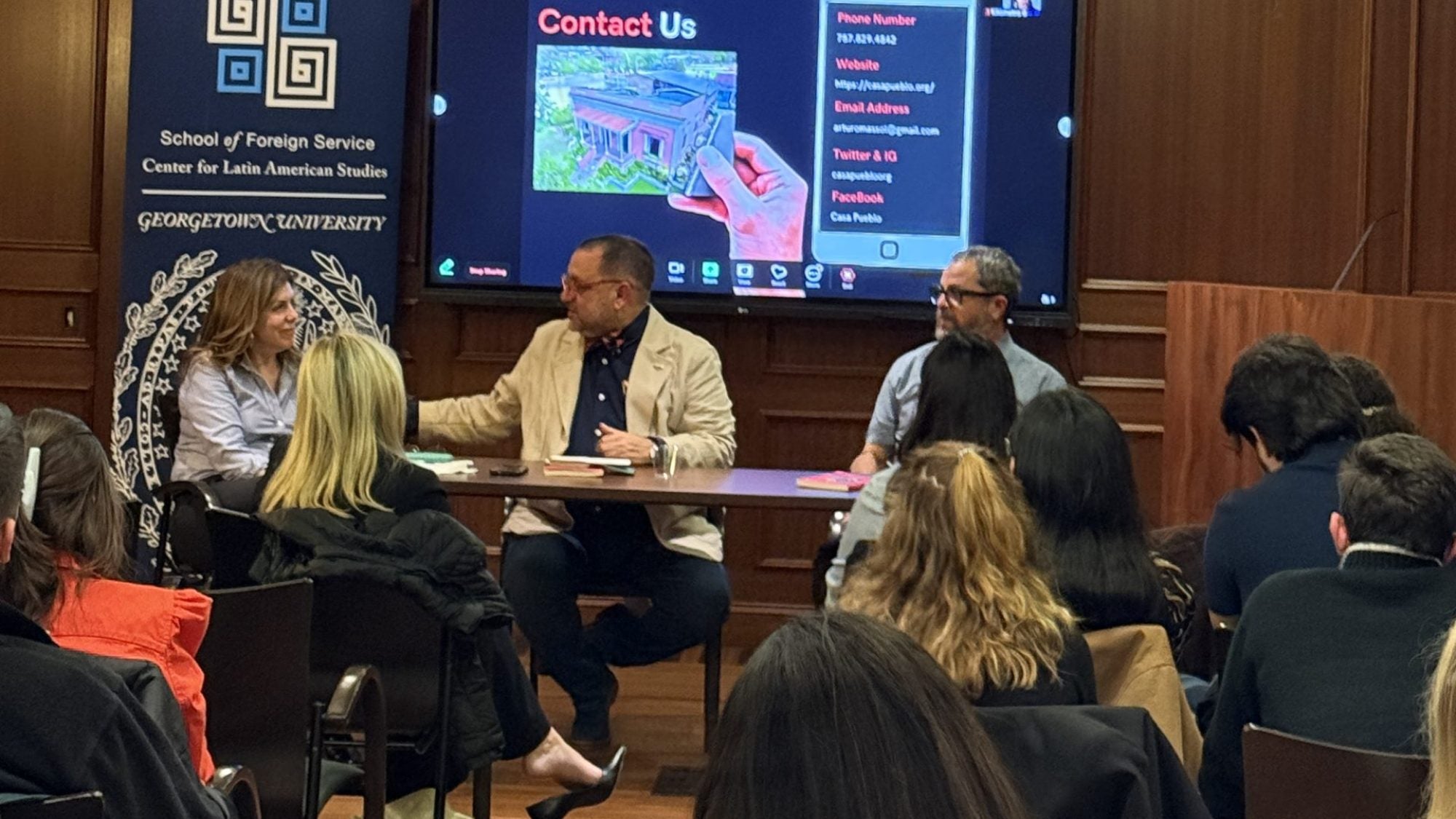The presentation examined how grassroots activism, direct democracy, and education have transformed Puerto Rico’s environmental landscape.
According to Dr. Arturo Massol-Deyá, the founder of Casa Pueblo, the organization was founded in the 1980s in response to government plans to develop open-pit mining as an economic stimulant for the island. The government’s decision prompted Dr. Massol-Deyá to dig deeper into understanding the repercussions Puerto Ricos’s dependence on imported fossil fuels. From his research, he founded Casa Pueblo, a community-led initiative to provide clean energy to local Puerto Ricans.
In 1996, Casa Pueblo became the first community group to manage state lands, setting a precedent for local environmental governance. In 2011, the organization mobilized 30,000 people to protest a gas pipeline project, further solidifying its role in advocating for sustainable energy alternatives. Casa Pueblo became a key actor in providing solar panels to local communities, reducing their (and therefore the island’s) dependence on imported fossil fuels.
Additionally, Casa Pueblo established Bosque Escuela, a teaching forest that promotes conservation and sustainable coffee farming as an alternative to environmentally harmful economic models. Bosque Escuela aims to contribute to a new generation of environmentally conscious Puerto Ricans who don’t view the need for fossil fuels as a given.
The presentation was followed by an audience-led Q&A where the Georgetown University and CLAS community asked questions regarding the the difficulties and challenges that Casa Pueblo faces as well as Dr. Massol-Deyá’s hopes for the organization’s future. The discussion underscored how Casa Pueblo’s efforts have shaped Puerto Rico’s energy future and provided a model for community resilience in the face of climate change and political challenges.

